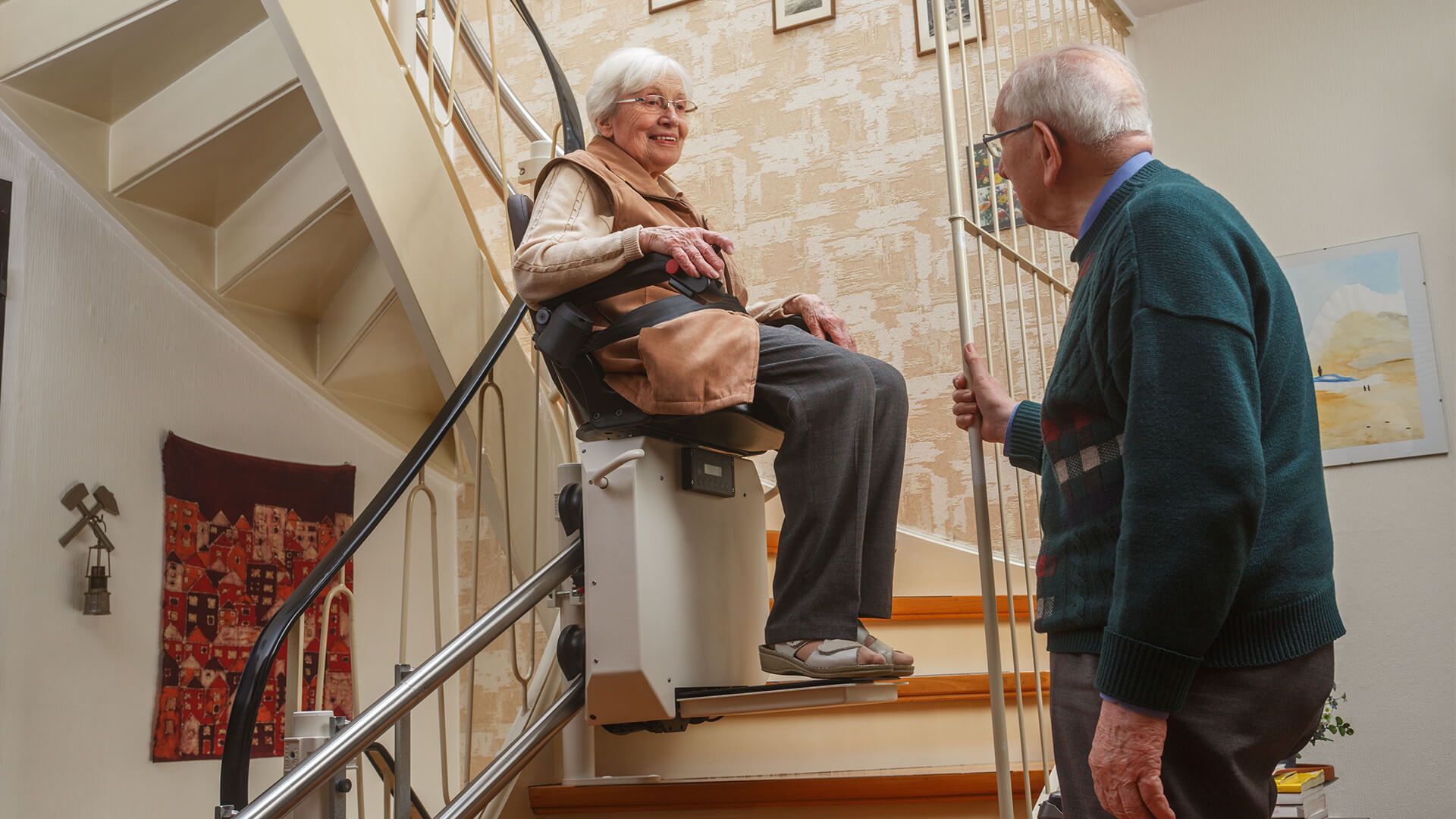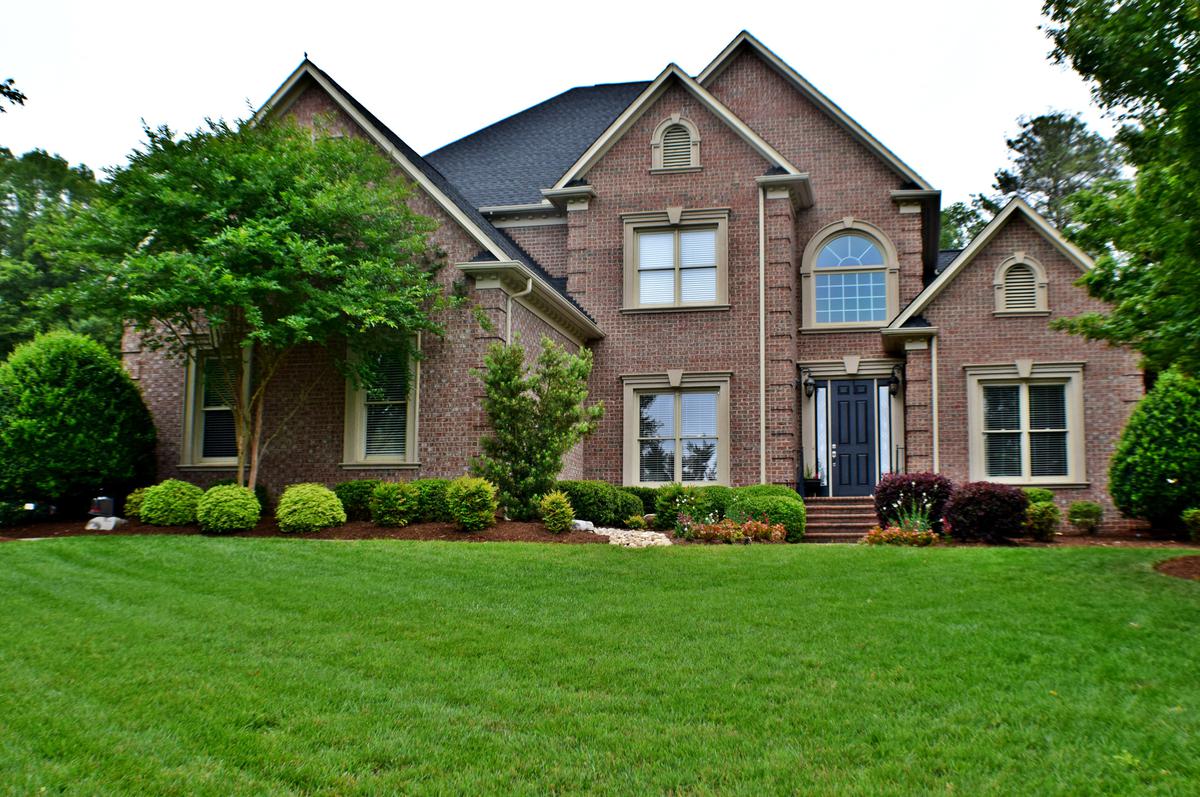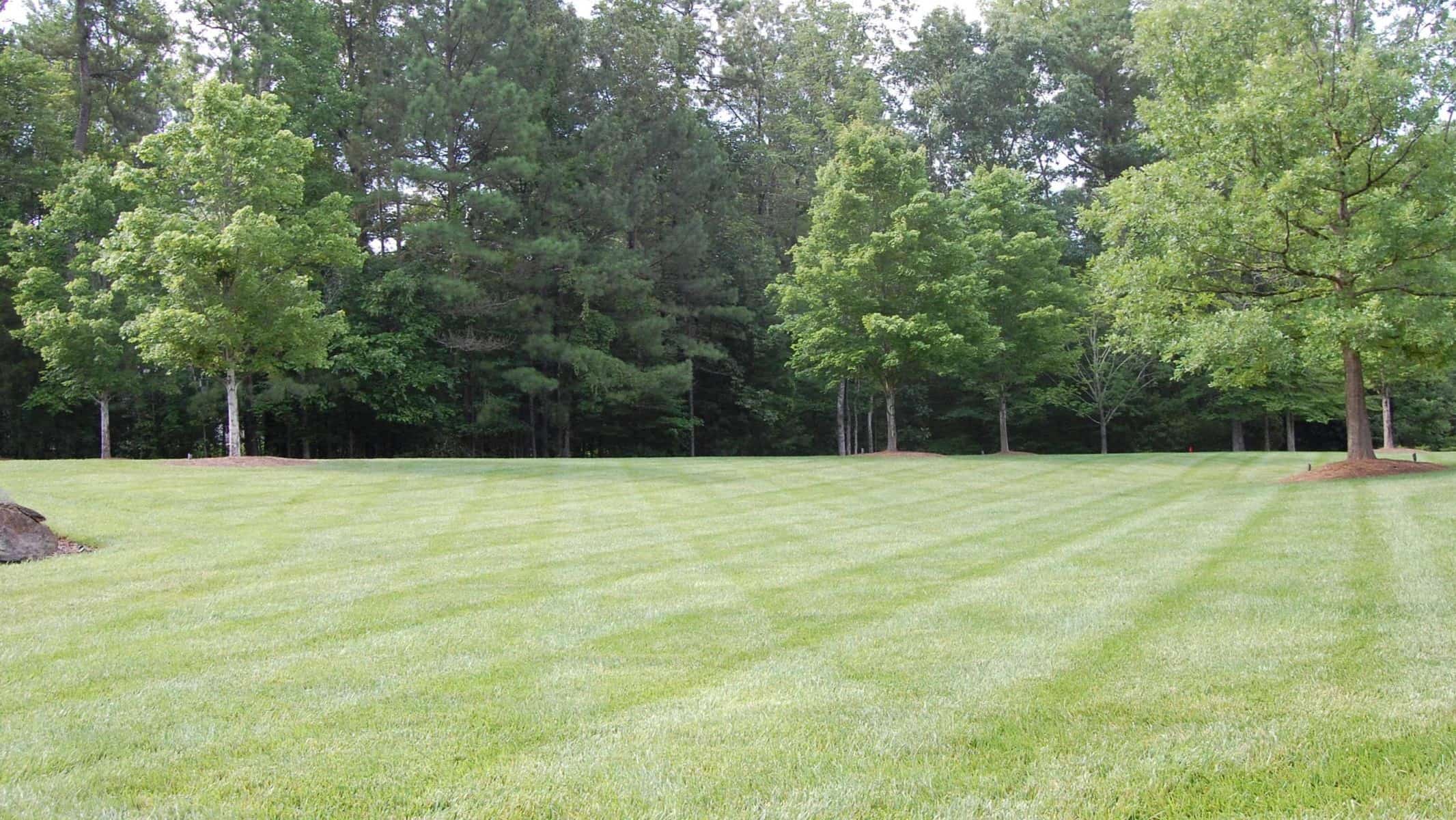Home>Home Maintenance>How To Get Home Repair Assistance For The Elderly In North Carolina


Home Maintenance
How To Get Home Repair Assistance For The Elderly In North Carolina
Modified: March 6, 2024
Find out how to get home repair assistance specifically designed for the elderly in North Carolina. Get help with home maintenance and repairs today!
(Many of the links in this article redirect to a specific reviewed product. Your purchase of these products through affiliate links helps to generate commission for Storables.com, at no extra cost. Learn more)
Introduction
Welcome to the world of home maintenance and repair! As we age, our homes may require some extra attention and care to ensure they remain safe, comfortable, and functional. However, navigating the world of home repair assistance can be daunting, especially for the elderly who may have limited resources or physical capabilities.
In North Carolina, there are a variety of programs and resources available to help seniors maintain and repair their homes. These programs aim to improve the overall quality of life for elderly residents by addressing issues such as safety hazards, accessibility, and essential repairs.
In this article, we will explore the different types of home repair assistance available in North Carolina, eligibility requirements for these programs, the application process, and tips for navigating the system. Whether you need help with minor repairs or major renovations, this guide will provide you with the information you need to access the support you deserve.
In the following sections, we will delve deeper into the specifics of home repair assistance for the elderly in North Carolina. Understanding the available options and requirements will enable you to make informed decisions and successfully navigate the process.
Key Takeaways:
- Elderly residents in North Carolina can access home repair assistance programs to make their homes safe and comfortable. These programs cover basic repairs, accessibility modifications, and energy efficiency upgrades.
- To apply for home repair assistance, gather necessary documents, research available programs, and seek help if needed. Follow up regularly and explore alternative resources if faced with challenges.
Section 1: Understanding Home Repair Assistance for the Elderly in North Carolina
Home repair assistance programs in North Carolina are designed to provide financial or practical support to elderly residents who require help with maintaining or repairing their homes. These programs aim to address a variety of needs, including safety, accessibility, energy efficiency, and basic repairs.
One of the key goals of home repair assistance programs is to improve the overall quality of life for seniors by allowing them to age in place. By ensuring that their homes are safe and well-maintained, elderly residents can continue living independently and comfortably, without the need for moving into assisted living facilities.
These programs can cover a wide range of repairs and modifications, including fixing faulty plumbing or electrical systems, repairing or replacing roofs, installing ramps or handrails for better accessibility, upgrading heating and cooling systems, and addressing other structural or safety concerns.
It is important to note that eligibility and available services may vary depending on the specific program and funding sources. In North Carolina, there are both state and local assistance programs, as well as nonprofits and community-based organizations that offer home repair assistance to the elderly.
Understanding the available resources and programs is the first step in accessing the assistance you need. In the following sections, we will explore the eligibility requirements, types of home repair services, and the application process for these programs in North Carolina. By gaining a better understanding of the system, you can navigate it more effectively and ensure you receive the support you need to maintain a safe and comfortable home.
Section 2: Eligibility Requirements for Home Repair Assistance Programs
Before applying for home repair assistance programs in North Carolina, it’s important to familiarize yourself with the eligibility criteria. These requirements ensure that the limited resources are allocated to those who truly need them. While the specific eligibility criteria may vary depending on the program, here are some common requirements:
- Age: Most home repair assistance programs in North Carolina are designed for individuals who are 60 years of age or older. Some programs may have a lower age requirement, such as 55 or 65, so it’s important to check the eligibility criteria of each specific program you’re interested in.
- Residency: Generally, you must be a legal resident of North Carolina to qualify for home repair assistance programs in the state. Proof of residency, such as a valid ID or utility bill, may be required during the application process.
- Income: Many assistance programs have income restrictions to ensure that the resources are allocated to those with limited financial means. The income limits usually depend on the size of your household. To determine your eligibility based on income, you may need to provide proof of income, such as tax returns or pay stubs.
- Home Ownership: Some programs may require applicants to be homeowners. However, there are also programs available for those who are renting, so it’s important to explore all available options.
- Priority: In some cases, priority may be given to individuals who are in immediate need of repairs due to safety concerns or health hazards. Certain programs may require a home inspection to assess the urgency of the repairs and determine priority status.
It’s important to note that the eligibility requirements can vary significantly between different home repair assistance programs. Some programs may have additional criteria, while others may focus on specific types of repairs or target specific populations, such as veterans or individuals with disabilities. Therefore, it’s essential to research and understand the specific eligibility requirements of the programs you’re interested in.
If you find that you do not meet the eligibility criteria for certain programs, don’t be discouraged. There may be alternative resources and organizations that can assist you. Nonprofit organizations, community-based groups, and local charities often provide home repair assistance to the elderly, regardless of income or specific eligibility requirements.
In the next section, we will explore the types of home repair services that are commonly provided through these assistance programs. Understanding the available services will give you a better idea of what kind of repairs and modifications you can expect to receive help with.
Section 3: Types of Home Repair Services Available
Home repair assistance programs in North Carolina offer a wide range of services to help elderly residents maintain and improve their homes. These services address various aspects of home repair and modification, ensuring that seniors can live safely and comfortably. Here are some common types of repairs and modifications that are available through these programs:
- Basic Repairs: Many home repair assistance programs cover basic repairs that are necessary for maintaining a safe living environment. This may include fixing leaky faucets, repairing or replacing damaged flooring, patching holes in walls, and addressing plumbing or electrical issues.
- Roof Repairs: A leaking roof can cause significant damage to a home and compromise its structural integrity. Home repair assistance programs often cover the cost of necessary roof repairs to prevent further damage and ensure a secure living environment.
- Accessibility Modifications: These programs may also provide assistance with making homes more accessible for elderly residents. This can include installing ramps, handrails, grab bars, and wheelchair lifts to improve mobility and reduce the risk of falls.
- Energy Efficiency Upgrades: Some programs focus on improving the energy efficiency of homes, helping residents reduce their utility bills and decrease their environmental impact. Services may include installing insulation, sealing air leaks, upgrading to energy-efficient appliances, and replacing old windows and doors.
- Health and Safety Upgrades: Home repair assistance programs often prioritize repairs and modifications related to health and safety. This can involve addressing issues such as mold or asbestos removal, fixing structural hazards, improving indoor air quality, and installing smoke detectors or fire extinguishers.
- Weatherization: North Carolina experiences a range of weather conditions throughout the year. Home repair assistance programs may offer weatherization services to help seniors better prepare for extreme temperatures. This can include insulation, weatherstripping, and sealing drafts to maintain a comfortable and energy-efficient home.
It’s important to note that the specific services provided by each program may vary. Some programs have limitations on the types of repairs they cover or prioritize certain types of modifications. Before applying for assistance, it’s a good idea to research the available programs and services to ensure they meet your specific needs.
In the next section, we will explore the application process for home repair assistance programs in North Carolina. Understanding the steps involved in applying will help you navigate the process and increase your chances of receiving the support you need.
Tip: In North Carolina, elderly homeowners can apply for the Home Repair Program through the NC Housing Finance Agency for financial assistance with critical home repairs. Contact the agency for eligibility requirements and application details.
Section 4: Application Process for Home Repair Assistance
Applying for home repair assistance programs in North Carolina involves a specific process to ensure that the limited resources are distributed equitably. While the application process may vary depending on the program, here are some general steps to follow when seeking home repair assistance:
- Research Programs: Begin by researching the different home repair assistance programs available in North Carolina. Look for programs that align with your specific needs, eligibility requirements, and the types of repairs or modifications you require.
- Gather Documentation: Once you have identified the programs you want to apply to, gather all the necessary documentation. This may include proof of age, residency, income, homeownership, and any additional documents required by the specific program.
- Contact Program Providers: Reach out to the program providers to obtain the application forms and inquire about any additional documents or information they may require. Ask any questions you may have about the application process and eligibility criteria.
- Complete the Application: Fill out the application forms with accurate and detailed information. Be sure to include all the necessary supporting documents to support your eligibility.
- Submit the Application: Submit your completed application and supporting documents to the program provider by the specified deadline. Be mindful of any additional instructions provided, such as whether to mail or hand-deliver your application.
- Follow Up: After submitting your application, follow up with the program provider to ensure they received your materials and to inquire about the next steps in the process. Keep track of any reference numbers or contact information provided for future communication.
- Application Review: The program provider will review your application and assess your eligibility based on the criteria outlined for the specific program. They may conduct a home inspection to determine the scope of the repairs needed and prioritize them accordingly.
- Notification of Approval: Once your application has been reviewed, you will be notified of the program’s decision. If approved, they will provide you with details about the repairs or modifications they will cover and the timeline for completing the work.
- Work Completion: If your application is approved, the program provider will coordinate with contractors or service providers to carry out the necessary repairs or modifications. Be prepared for some disruption during the work, but rest assured knowing that your home will be improved as a result.
It’s crucial to make sure you provide accurate and complete information during the application process. Any inconsistencies or missing documents may delay the approval process or result in your application being denied.
If your application is denied, don’t despair. You can inquire about the reasons for the denial and explore other resources that may be available to assist you. Nonprofit organizations, community-based groups, and local charities may offer home repair assistance to individuals who do not qualify for specific government programs.
In the next section, we will provide you with resources for finding home repair assistance programs in North Carolina. These resources will help you identify additional support options and expand your chances of receiving the assistance you need.
Read more: When To Sow Grass Seed In North Carolina
Section 5: Resources for Finding Home Repair Assistance Programs
When seeking home repair assistance programs in North Carolina, it’s important to explore various resources to identify the programs that best suit your needs. Here are some valuable resources to help you find home repair assistance programs:
- North Carolina Housing Finance Agency (NCHFA): The NCHFA offers a range of housing-related assistance programs, including home repair and rehabilitation programs. Their website provides information on available resources and eligibility criteria.
- Aging and Disability Resource Centers (ADRCs): ADRCs are valuable resources that can connect you with local programs and services for seniors. They can provide information about home repair assistance programs in your area and help you navigate the application process.
- Local Government Websites: Check the websites of your local city or county government offices. They often have information about home repair assistance programs specific to your area. Contact the housing or community development department for more details.
- Nonprofit Organizations: Many nonprofit organizations in North Carolina offer home repair assistance to low-income seniors. Examples include Habitat for Humanity, Rebuilding Together, and local community development organizations. Visit their websites or contact them directly to inquire about available programs.
- 211 Helpline: Dialing 211 can connect you to a helpline service that provides information and referrals to various health and human services in your area. They can direct you to local programs and organizations that offer home repair assistance.
- Local Area Agency on Aging: Contact your local Area Agency on Aging (AAA) for resources and assistance related to home repairs. AAAs often have information on programs specifically tailored to the needs of elderly residents.
When using these resources, be prepared to provide details about your specific needs and circumstances. This will help the organizations guide you towards the most suitable programs and resources.
It’s worth noting that these resources are not exhaustive, and there may be additional programs and organizations in your specific community. Take the time to reach out to local community centers, churches, and senior centers as they may have information on available assistance programs.
In the final section, we will provide you with some useful tips for navigating the home repair assistance process in North Carolina. These tips will help you streamline your efforts and increase the likelihood of successfully obtaining the assistance you need.
Section 6: Tips for Navigating the Home Repair Assistance Process in North Carolina
Navigating the home repair assistance process in North Carolina can be overwhelming, but with these helpful tips, you can navigate the process more effectively:
- Research and Plan: Take the time to research the available programs and resources in your area. Understand their eligibility requirements, the types of repairs or modifications they cover, and any application deadlines. Planning ahead will help you stay organized and ensure you submit your applications on time.
- Seek Multiple Options: Explore different programs and organizations that offer home repair assistance. Don’t limit yourself to just one option. By seeking multiple sources of assistance, you increase your chances of finding the right program that meets your needs.
- Be Proactive: Take the initiative to gather all the necessary documentation and information required for your applications. Be prepared to provide accurate and detailed information about your situation, including proof of income, residency, and home ownership. Being proactive will speed up the application process.
- Get Assistance with Applications: If you find the application process challenging, don’t hesitate to seek help. Reach out to your local Aging and Disability Resource Center, Area Agency on Aging, or other community-based organizations. They can guide you through the application process and assist with any questions or concerns you may have.
- Keep Records: Maintain a record of all communication and documentation related to your applications for home repair assistance. This includes copies of application forms, supporting documents, emails, and reference numbers. Having organized records will be helpful in case you need to follow up or appeal a decision in the future.
- Follow Up Regularly: Stay engaged with the program providers throughout the process. Follow up on the status of your application, inquire about any additional information they may need, and request a timeline for approval or work completion. Regular follow-ups will help move your application forward and ensure that repairs or modifications are scheduled in a timely manner.
- Explore Alternative Resources: If you encounter challenges or are denied assistance through certain programs, don’t lose hope. There are often alternative resources available, such as local charities or nonprofit organizations, which may be able to provide the help you need. Expand your search and explore all possible avenues.
- Express Gratitu
Conclusion
Navigating the world of home repair assistance for the elderly in North Carolina can be a complex process, but with the right knowledge and resources, you can successfully access the support you need. By understanding the available programs, eligibility requirements, types of services, and application process, you can confidently seek assistance for maintaining and repairing your home.
Remember to conduct thorough research to identify the programs and organizations that align with your specific needs. Take advantage of resources such as the North Carolina Housing Finance Agency, Aging and Disability Resource Centers, and local government websites. These resources can provide vital information to help you find and apply for home repair assistance.
When applying for assistance, be prepared to provide accurate and complete documentation to support your eligibility. Follow the application guidelines provided by each program and stay proactive throughout the process. Seek assistance from community organizations if needed and maintain organized records of your applications and communications.
Furthermore, if you face challenges or are denied assistance from certain programs, don’t give up. Explore alternative resources and reach out to local charities or nonprofit organizations that may offer additional support. There are often multiple options available, and with perseverance, you can find the assistance you need to maintain a safe and comfortable home.
Remember, home repair assistance programs are designed to improve the quality of life for elderly residents by ensuring their homes are safe and well-maintained. By taking advantage of these programs, you can continue to age in place with dignity and independence.
Now that you have a better understanding of the home repair assistance process in North Carolina, it’s time to take action. Begin researching the available resources and start gathering the necessary documentation. Whether you need minor repairs or major modifications, there is assistance available to help you create a safe and comfortable living environment.
Don’t hesitate to reach out to the various organizations and programs mentioned in this article for guidance and support. Remember, you deserve to live in a home that is secure, accessible, and conducive to a high quality of life. Start the process today and take the first step towards securing the home repair assistance you need.
Frequently Asked Questions about How To Get Home Repair Assistance For The Elderly In North Carolina
What types of home repairs are covered by the assistance program in North Carolina?The home repair assistance program in North Carolina covers a wide range of repairs including plumbing, electrical, roofing, heating and cooling, and accessibility modifications for elderly homeowners.How can elderly homeowners in North Carolina apply for home repair assistance?Elderly homeowners in North Carolina can apply for home repair assistance by contacting their local Area Agency on Aging or by reaching out to the North Carolina Housing Finance Agency for more information and application details.Who is eligible for home repair assistance in North Carolina?To be eligible for home repair assistance in North Carolina, homeowners must be 60 years of age or older, own and occupy the home in need of repairs, and meet certain income requirements based on the size of their household.Are there any income requirements to qualify for home repair assistance in North Carolina?Yes, there are income requirements to qualify for home repair assistance in North Carolina. The income limits vary based on the size of the household, and homeowners must meet these limits to be eligible for the program.How long does it take to receive home repair assistance after applying in North Carolina?The time it takes to receive home repair assistance in North Carolina can vary, but once an application is submitted, it will be reviewed and processed, and homeowners will be notified of their eligibility and the next steps in the assistance process.
Was this page helpful?
At Storables.com, we guarantee accurate and reliable information. Our content, validated by Expert Board Contributors, is crafted following stringent Editorial Policies. We're committed to providing you with well-researched, expert-backed insights for all your informational needs.














